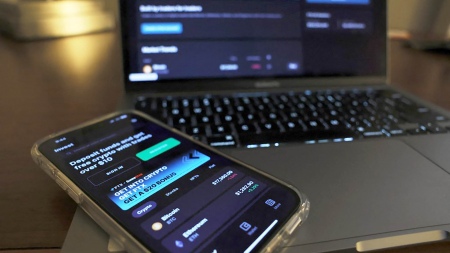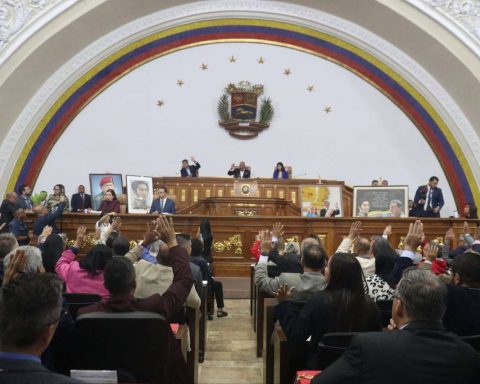Cryptocurrency thefts and hacks around the world set a record in 2022, after nearly US$3.8 billion were stolen from users through security flaws, mainly in decentralized finance (DeFi) protocols, which concentrated 82.1% of all cryptocurrencies stolen by hackers.
It was precisely the rise of these protocols at the beginning of 2021 that made the cryptocurrency market grow, since it allowed users from all over the world to take and borrow cryptocurrencies via decentralized platforms, that is, in which the execution of payments and Charges were defined in a way through smart contracts and without the intervention of people.
However, just as DeFi made the crypto market grow, thefts also increased: from US$ 500 million hacked in 2020 to US$ 3.3 billion in 2021 and US$ 3.8 billion in 2022.
In this sense, of the total cryptocurrency money stolen last year, some US$ 3.1 billion, was stolen from users of DeFi protocols, according to a report by the firm Chainalysis.

“DeFi protocols are especially susceptible to hacking due to the use of open source. While open source can be useful for security by allowing code to be audited, it also allows cybercriminals to study the code and spot opportunities for exploitation,” They pointed to Télam from Chainalysis.
Today, there is about $50 billion sitting in DeFi protocols around the world, considerably less than the nearly $180 billion in late 2021, when “crypto fever” peaked. , according to data from the DefiLlama portal.
The growth of these savings products is due to the fact that they facilitate loans and loans through smart contracts on a blockchain, instead of through a financial institution, which avoids intermediaries, reduces operating costs for borrowers, improves performance for providers and transparency of operations.
“It is important to note that robust protection against hacks requires the industry to strengthen security, and law enforcement to continue to advance their ability to investigate and seize stolen cryptocurrency.”chainalysis
In any case, and unlike bank deposits or the capital market, DeFi platforms -such as MakerDAO, Lido, Aave, Curve or Uniswap, among the best known- do not have deposit guarantee insurance, which is read by many of those interested in entering this world as a fear of being scammed.
“Crypto investors can protect themselves from these attacks by learning how to find safe investment projects. It’s also important to note that robust protection against hacks requires the industry to strengthen security, and law enforcement to continue to advance their ability to investigate and seize stolen cryptocurrency to the point that hacking is no longer worth it,” Chainalysis said.
Looking ahead, they assured that they do not see signs that hacking is going to decrease in the short term, since “most likely it is that interoperability between blockchains will continue to be an important objective of the community”, although “given the losses and With the promise of DeFi as an antidote to some of the shortcomings that led to FTX’s collapse, we believe there will be a great deal of collaboration and progress in this space.”
“The only way to stop them is for the industry to tighten security and educate consumers on how to find safe projects to invest in. Law enforcement, meanwhile, must continue to build their ability to seize stolen cryptocurrency to the point where hacking is no longer worth it,” they said.

In Argentina, 17% of adults have ever bought cryptocurrencies as a way of saving or investing, a significant increase compared to the 12% that had done so a year ago, and exceeds the adoption of other countries in the region, such as Colombia. and Brazil (14%), Mexico (9%), Peru (7%) and Chile (8%).
Regarding the means through which they do so, 79% of Argentine investors said they accessed through cryptocurrency exchanges (platforms), while the rest (21%) did so via P2P transactions, that is, they bought them. to another person with transfer or cash payments, according to a study by Americas Market Intelligence (AMI), based on 2,400 surveys of smartphone users in these countries in November 2022.
In Argentina, 17% of adults have ever bought cryptocurrencies as a way of saving or investing, a significant increase compared to 12% who had done so a year ago.
There are currently a dozen cryptocurrency exchanges (platforms) operating in Argentina such as Belo, Buenbit, Defiant, Lemon Cash, Let’s Bit, Ripio and Satoshi Tango, among others, through which you can buy Bitcoin or Ether -the two main cryptocurrencies in the market-, tokens of lesser volume such as Cardano, Solana or Matic, or stable cryptocurrencies (stablecoins) such as USDT, USDC, DAI or others that follow the value of the dollar 1 to 1.
53% of Argentines who stated that they had bought cryptocurrencies in the last year acquired stablecoins -which follow the value of the dollar 1 to 1- and 46% said that what they were looking for was to protect their savings against inflation, according to ME.


















